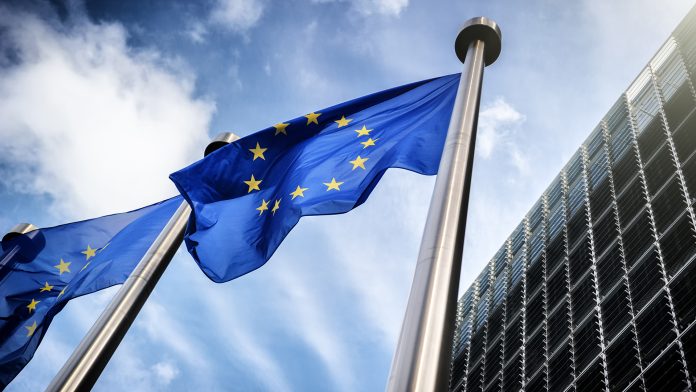At the EIT RawMaterials 2023 Summit, EU leaders underlined the importance of the Critical Raw Materials Act for Europe and explained how it will increase resilience and security.
Europe’s raw materials sector has huge economic potential that needs to be realised. The Critical Raw Materials Act will strengthen Europe’s technological advantage and allow Europe to compete globally in the raw materials sector.
Critical raw materials are essential for a number of strategic industries including the renewable energy, digital, and defence sectors. The actions outlined in the Critical Raw Materials Act ensure that the EU can access a secure and diversified yet affordable supply of sustainable critical raw materials.
At EIT RawMaterials’ 2023 Raw Materials Summit, Kerstin Jorna, Director-General for Internal Market, Industry, Entrepreneurship, and SMEs, Hildegard Bentele, Group of the European People’s Party, MEP, and Bernd Schäfer, CEO and Managing Director of EIT RawMaterials, discussed how the Act will increase Europe’s resilience, security, and ultimately benefit society as a whole.
Why is the Critical Raw Materials Act important for Europe’s growth?
As demand for critical raw materials grows, it is important that Europe reduces its reliance on imports from quasi-monopolistic third country suppliers.
The Russian Invasion of Ukraine and nearing energy deployment targets highlighted the need for the Act to be created. Without a secure supply of raw materials, the EU’s transition to clean energy is put in jeopardy.
The Critical Raw Materials Act will give the EU the tools to gain access to a secure supply of raw materials. The Act includes clear benchmarks for domestic capacities along the entire supply chain:
- At least 10% of the EU’s annual consumption for extraction;
- At least 40% of the EU’s annual consumption for processing;
- At least 15% of the EU’s annual consumption for recycling; and
- Not more than 65% of the Union’s annual consumption of each strategic raw material at any relevant stage of processing from a single third country.
At the Summit, Jorna emphasised the idea that the Critical Raw Materials Act is a revolution compared to other single market Acts.
The Act focuses on the business case for raw materials, looking particularly at access to land, creating a bridge between public and private sources of financing, the importance of skills academies, and ensuring that there will be a market for the raw materials.

There is still room for improvement within the Act
However, as discussed at the Summit, the leaders posed that there is room for improvement within the Critical Raw Materials Act.
Bentele argued that the Act requires more coherence. Particularly, more emphasis needs to be put on the strategic importance of the Act which will give leverage for the interpretation of existing legislation on critical raw materials.
Schäfer added that what is missing within the Act is ensuring that the actions are operational. The Act must be tangible, and it is important that major stakeholders are included.
What does Europe need to look towards for 2030?
The discussion was rounded up with an outlook on Europe in 2030.
Jorna emphasised the importance of reducing permitting times, and targeted that mine permitting should take no longer than two years. She also argued that a highly competitive skills engine should be developed which will help fill the gap of the 1.2 million jobs needed in the future.
The raw materials sector should be made more attractive to further help fill this skills gap, added Schäfer. If raw materials are rebranded, it will play a role in attracting the huge workforce that is required from the younger generation.
Bentele underlined that political will is urgently needed. If a secure supply of raw materials is not sourced for the green energy transition now, it will never be done. She argued that more strategic mining projects need to happen across Europe to facilitate movement within the sector.
The Critical Raw Materials Act has the potential to help secure sustainable supply chains to ensure that the EU can transition to a green and digital future.









